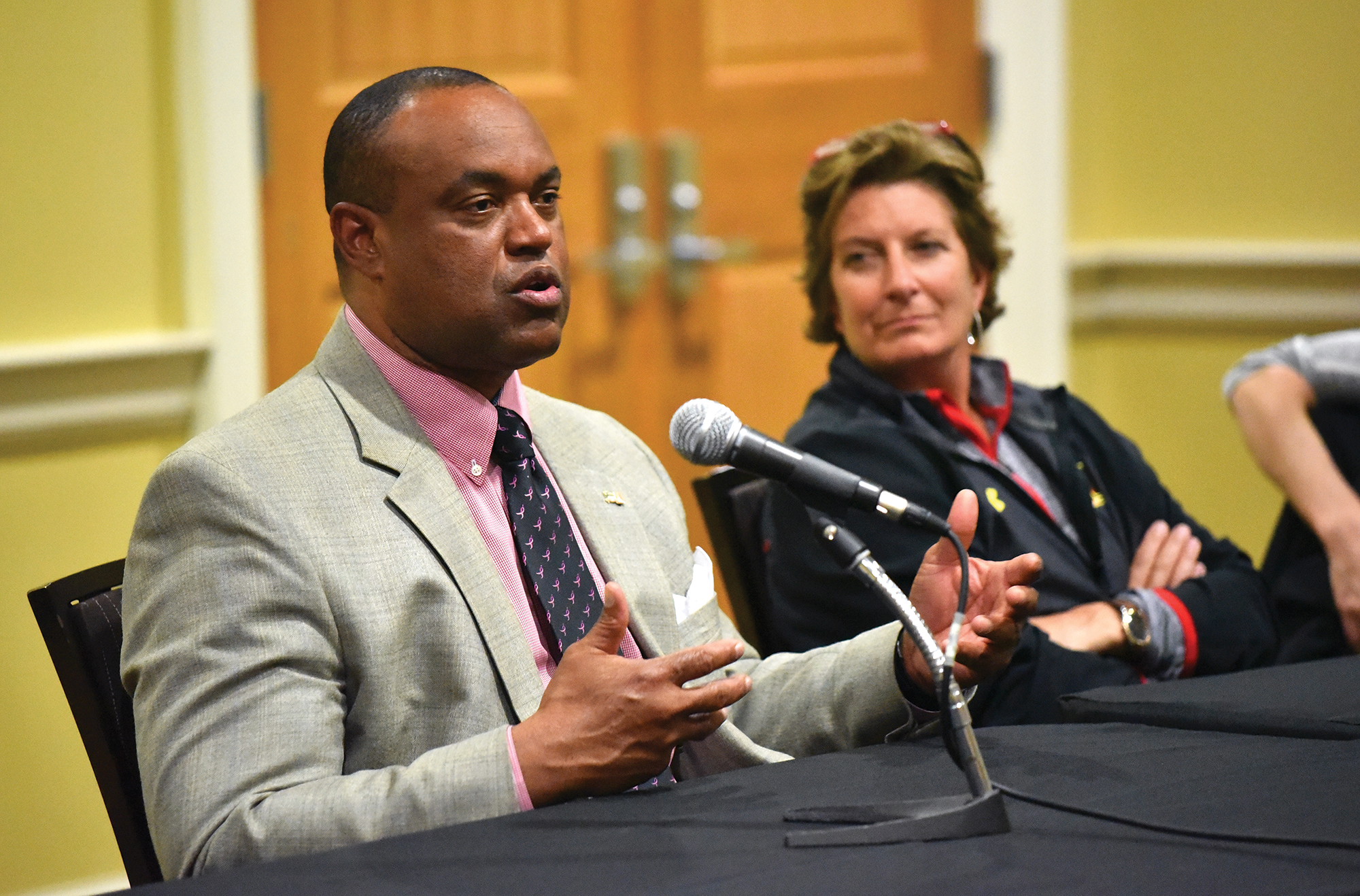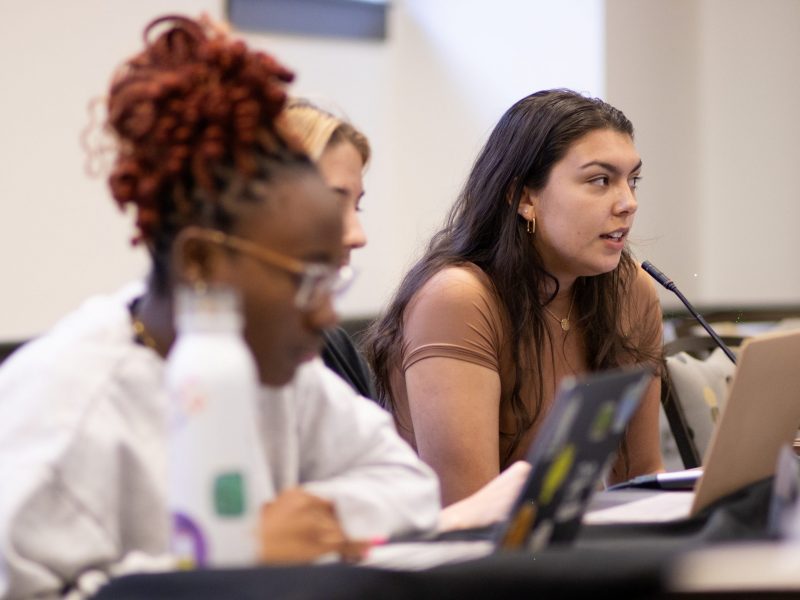When Terrapins men’s soccer coach Sasho Cirovski got out of college, he wanted to stay involved in the sport — but loved the idea of helping people. Coaching, he found, was a perfect blend of the two.
“It always felt great to be able to inspire people,” Cirovski said. “I get really inspired by taking young and ambitious young people and helping them become better people.”
Cirovski was one of four University of Maryland athletic coaches to speak to an audience of about 25 students and faculty members Thursday on the importance of leadership in and outside of sports. The panel, hosted by the Omicron Delta Kappa-Sigma Circle, was moderated by Ian Moritz, a senior finance and management major.
Cathy Reese, who played lacrosse at this university before becoming the women’s lacrosse head coach, said that her experiences playing lacrosse for the Maryland Terrapins helped shape her decision to pursue coaching as a career.
“I played lacrosse here and I absolutely loved my experience,” Reese said. “I never even knew that coaching could be a profession. I loved my experience as a student-athlete. I loved the team aspect, the social aspect, school, all of it together was just amazing.”
Kiely Duffy, a freshman government and politics major who attended the panel, said coaches are great examples to learn from, as the values they teach cannot be taught in a classroom.
“They all stressed on values and how important they are when in a leadership position, especially since your character is who you are and how you are in life,” Duffy said.
Omicron Delta Kappa wanted to host an event that involved athletic coaches as part of its leadership series so people could get to know how the athletic teams on the campus can also provide leadership within the campus community, Moritz said. Reese and Cirovski were joined by Mike London, the football team’s associate head coach and defensive line coach, and field hockey coach Missy Meharg.
In response to an audience question about how the coaches prepare student-athletes for after college, especially if they pursue professions outside their collegiate sport, London explained his belief that the student-athlete needs to be able to respond to all kinds of situations — which he said he tried to teach by example.
“Leadership is also your ability to influence in either a positive or negative way,” said London. “As coaches, there are adversities that you have to face in life and your players are looking at you and see how you are going to respond to that.”
Meharg, meanwhile, emphasized the importance of making resources available to athletes, which could be essential for their well-being.
Having access to resources, such as a sports psychologist, can provide a “safe place” for athletes to go if they’re feeling overwhelmed, she said.
“Today, leadership is not about reacting quickly; it’s about listening,” Meharg said. “There is a ton of expectation on these young people and that is so challenging for them. Always having an escape plan for them is really important.”
The coaches were also asked about how they would go about dealing with student-athletes who might come to the university with an ego.
Meharg pointed to student leadership and trust among the athletes on the team as essential.
“We’ve got a leadership team. We’ve got senior, junior, sophomore and freshmen who are a part of a leadership team who join the captains and learn from one another,” Meharg said.
London, on the other hand, stressed the importance of recruiting “the right type of kid.”
“They need to want to get an education, to want to build something, to be a part of something,” he said. “I would rather go in the direction with a player that has OK, decent, average talent and wants to work hard.”
The final question of the panel focused on the coaches’ first year coaching and how they handled being a leader for their team at the outset of their careers.
For Cirovski, just starting out was the most exciting time, he said, and he never walked into his office without a smile on his face.
“You have your values and you have your ideas; it’s energizing and it’s exciting, he said. “I want people to know that I am happy to be here, and if I could express that emotion, then that would motivate my players to be just as excited as you are to be here.”



